Filter by
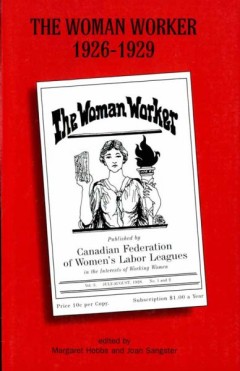
The Woman Worker 1926-1929
This volume presents the inaugural issue and articles from The Woman Worker, the official newspaper of the Canadian Federation of Women’s Labor Leagues, during its 1926 to 1929 run. Edited by prominent Communist Party of Canada leader Florence Custance, The Woman Worker’s objective was to “champion the Protection of Womanhood, and the cause of the Workers generally.” In this collection,…
- Edition
- -
- ISBN/ISSN
- 1-894000-01-3
- Collation
- -
- Series Title
- CCLH Publications
- Call Number
- -
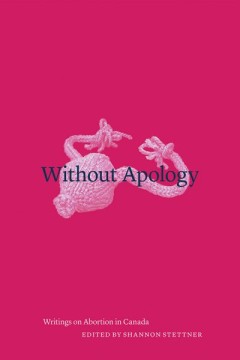
Without Apology Writings on Abortion in Canada
With contributions by Aalya Ahmad, Tracey L. Anderson, Jane Cawthorne, Peggy Cooke, Shannon Dea, Carolyn Egan, Linda Gardner, Laura Gillespie, Sterling Haynes, E.K. Hornbeck, Clarissa Hurley, “Dr. James”, H. Bindy K. Kang, Kristen, Natalie Lochwin, Mackenzie, Colleen MacQuarrie, Ruth Miller, Judith Mintz, Erin Mullan, Jen Rinaldi, Sadie Roberts, Martha Solomon, Shannon Stettner, Karen Stote…
- Edition
- -
- ISBN/ISSN
- 9781771991599.01
- Collation
- -
- Series Title
- -
- Call Number
- 366 pages
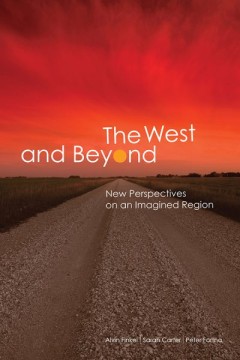
The West and Beyond New Perspectives on an Imagined Region
The West and Beyond explores the state of Western Canadian history, showcasing the research interests of a new generation of scholars while charting new directions for the future and stimulating further interrogation of our past. This dynamic collection encourages dialogue among generations of historians of the West, and among practitioners of diverse approaches to the past. It also reflects a …
- Edition
- -
- ISBN/ISSN
- 978–1–897425–80–0
- Collation
- -
- Series Title
- The West Unbound: Social and Cultural Studies
- Call Number
- 461 pages
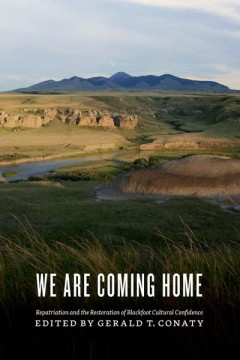
We Are Coming Home Repatriation and the Restoration of Blackfoot Cultural Co…
We Are Coming Home is the story of the highly complex process of repatriation as described by those intimately involved in the work, notably the Piikani, Siksika, and Kainai elders who provided essential oversight and guidance. We also hear from the Glenbow Museum’s president and CEO at the time and from an archaeologist then employed at the Provincial Museum of Alberta who provides an inside…
- Edition
- -
- ISBN/ISSN
- 9781771990172.01
- Collation
- -
- Series Title
- -
- Call Number
- 304 pages
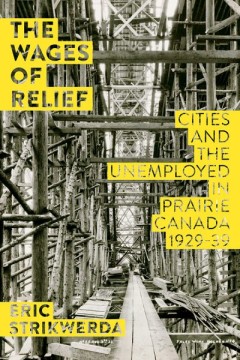
The Wages of Relief Cities and the Unemployed in Prairie Canada, 1929–39
Setting municipal relief administrations of the 1930s within a wider literature on welfare and urban poor relief, Strikwerda highlights the legacy on which relief policymakers relied in determining policy directions, as well as the experiences of the individuals and families who depended on relief for their survival. Focusing on three prairie cities—Edmonton, Saskatoon, and Winnipeg—Strikwe…
- Edition
- -
- ISBN/ISSN
- 978-1-927356-05-0
- Collation
- -
- Series Title
- Working Canadians: Books from the CCLH
- Call Number
- 333 pages
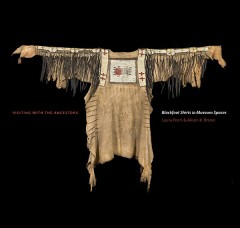
Visiting With the Ancestors Blackfoot Shirts in Museum Spaces
In the pages of this beautifully illustrated volume is the story of an effort to build a bridge between museums and source communities, in hopes of establishing stronger, more sustaining relationships between the two and spurring change in prevailing museum policies. Negotiating the tension between a museum’s institutional protocol and Blackfoot cultural protocol was challenging, but the expe…
- Edition
- -
- ISBN/ISSN
- 9781771990370.01
- Collation
- -
- Series Title
- -
- Call Number
- 10.5 x 10, 232 pages
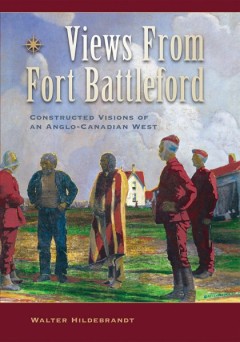
Views From Fort Battleford Constructed Visions of an Anglo-Canadian West
The Myth of the Mounties as neutral arbiters between Aboriginal peoples and incoming settlers remains a cornerstone of the western Canadian narrative of a peaceful frontier experience that differs dramatically from its American equivalent. Walter Hildebrandt eviscerates this myth, placing the NWMP and early settlement in an international framework of imperialist plunder and the imposition of co…
- Edition
- -
- ISBN/ISSN
- 9781897425459
- Collation
- -
- Series Title
- -
- Call Number
- -
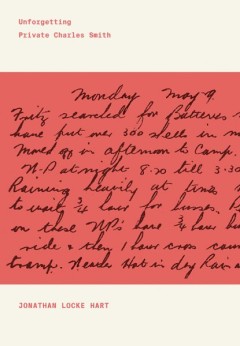
Unforgetting Private Charles Smith
Private Charles Smith had been dead for close to a century when Jonathan Hart discovered the soldier’s small diary in the Baldwin Collection at the Toronto Public Library. The diary’s first entry was marked 28 June 1915. After some research, Hart discovered that Charles Smith was an Anglo-Canadian, born in Kent, and that this diary was almost all that remained of this forgotten man, who lik…
- Edition
- -
- ISBN/ISSN
- 9781771992534.01
- Collation
- -
- Series Title
- -
- Call Number
- 4.5 x 6.5, 80 pages
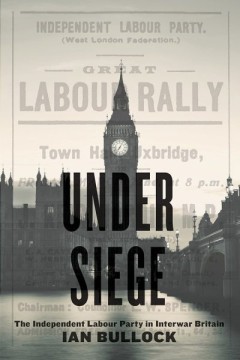
Under Siege The Independent Labour Party in Interwar Britain
Despite this reversal of fortunes, during the 1930s—years that witnessed the ascendancy of both Stalin and Hitler—the ILP demonstrated an unswerving commitment to democratic socialist thinking. Drawing extensively on the ILP’s Labour Leader and other contemporary left-wing newspapers, as well as on ILP publications and internal party documents, Bullock examines the debates and ideological…
- Edition
- -
- ISBN/ISSN
- 9781771991551.01
- Collation
- -
- Series Title
- -
- Call Number
- -
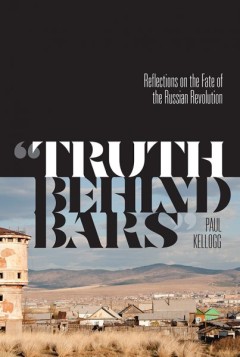
“Truth Behind Bars” Reflections on the Fate of the Russian Revolution
Paul Kellogg uses the story of Vorkuta as a frame with which to re-assess the Russian Revolution. In particular, he turns to the contributions of Iulii Martov, a contemporary of Lenin, and his analysis of the central role played in the revolution by a temporary class of peasants-in-uniform. Kellogg explores the persistence and creativity of workers’ resistance in even the darkest hours of aut…
- Edition
- -
- ISBN/ISSN
- 9781771992459.01
- Collation
- -
- Series Title
- -
- Call Number
- 6x9, 440 pages
 Computer Science, Information & General Works
Computer Science, Information & General Works  Philosophy & Psychology
Philosophy & Psychology  Religion
Religion  Social Sciences
Social Sciences  Language
Language  Pure Science
Pure Science  Applied Sciences
Applied Sciences  Art & Recreation
Art & Recreation  Literature
Literature  History & Geography
History & Geography